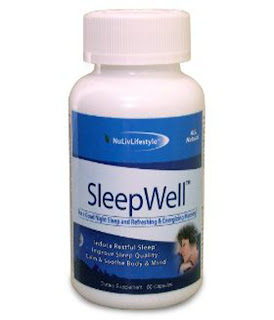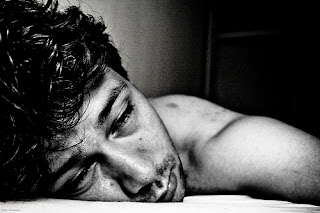Affordable Non-Drug solution to Insomnia
 |
| solution to insomnia |
Up until recently, there were four choices for persons with Insomnia. These were:
1. Do nothing, suffer and hope it'll get better with time. This is the sad choice of many, and it doesn't work. They most often get worse.
2. Start taking one of the huge advertised array of drugs, and then often taking other drugs hoping to solve the side effects as they show up. This is known as the drug “side effect chain”. (My ex-wife once ended up taking six different drugs in this way, and the end effect was that she got worse instead of better - a not uncommon result)
3. Pay exorbitant amounts of money for EEG Biofeedback (Neurofeedback) training. This has been the best solution up to now. The overall success rate (with good and bad clinicians) is considered to be about 85%. But, the cost of 60 (recommended) half hour sessions with a "professional" at $4500 to over $10,000 is above the ability of most mid and low income families.
4. Try various allergy clinics to try to find the allergy/sensitivity responsible, and also do all the various tests for mineral toxicity (mercury, copper, arsenic, cadmium, etc. This is also pretty expensive, with the very best system (End Point Titration) costing upwards of $10,000. (For more info on EPT, see
http://www.Alternate-Health.com/allergy.html).
Now, there's another choice. I invented a new method of changing brain wave amplitude (up or down) that is similar to EEG BF, but is inexpensive enough to give mid and low income families a choice besides expensive and dangerous drugs. It's auditory messaging used mostly during sleep. Instead of changing behavior as is "usual" with this technique, it does the same thing that EEG biofeedback (neurofeedback) does, i.e. it raises the SMR brain wave (12-14 cycles per second - Hz), while lowering the Theta brain wave (4-8 Hz) at the same time.
For those who aren't familiar with EEG BF, this is the most effective brain training mechanism that best solves this particular brain problem. (It also solves ADHD, insomnia, IBS, epilepsy, and even many cases of schizophrenia. There is substantial proof of this effectiveness of EEG BF, and a summary of professional papers can be found at:
In my former practice as an Orthomolecular Psychologist, I had used auditory messaging with good success, and in 2004, I realized that it should be possible to use this technique to do the same thing that was done by the expensive EEG Bf units and a computer. Instead of going thru the conscious mind of the "trainee" to affect the unconscious, why not go directly to the unconscious mind?
After more than two years, three clinical trials, and extensive testing utilizing volunteers who paid for the right to participate, I proved the following:
1. The Bate Auditory Brainwave Training (Patent Pending) Is very similar to EEG BF and accomplishes the same “basic brain training” with these following minor differences:
a. It compares with one night sleep being almost equivalent to one half hour session. Individuality is part of the picture of course, but in our tests of 11 persons suffering from insomnia, all except one got dramatic results within a few weeks, and in some cases a few days. That one was in the original tests, and was frightened by the Hawthorne Effect (see below), and quit using the system.
In the last test, this possible effect was discussed beforehand and warned about, and while it occurred in a few cases, it did not deter any of the volunteers, as it had done in earlier testing. (This is NOT a dangerous "side effect" such as can be caused by all drugs! It can cause minor discomfort in a few individuals for only a day or so at worst.)
c. Motivation is no longer a huge factor as it is in EEG BF. Both the parents
and the child have to motivated to continue long weeks of training, and if the training is stopped before an end point, some, or most, of the gain is lost.
2. This system costs under $200, and that is a one-time fee only. It can be used for as long as it takes. (With Autistic children, it can take up to 200 EEG BF sessions). The system is composed of two basic CD's. The first is the actual Audio Training program, playable on any CD player, boom box, etc. The second CD is a computer disk that has several other programs useful as adjuncts to this training. This includes a free allergy/sensitivity test, a free bottle of amino acid supplement that has a calming effect, and several articles on alternate health therapies that have been shown to be of help for all types of brain problems.
3. There is also a year's full money back guarantee of success. If any person tries this for at least 60 days, and then states that there has been no significant improvement they will receive a full rebate including shipping and handling (which is included in the price).
Now, even the low and mid income families have a choice that doesn't force them to do nothing or to try and/or use dangerous drugs.
Phil Bate PhD - Retired Orthomolecular Psychologist
Inventor and Patent Pending Holder for
Brain Wave Amplitude Changing via Auditory Training

































